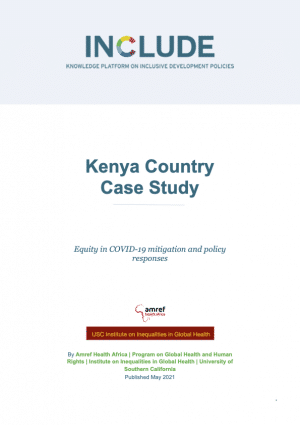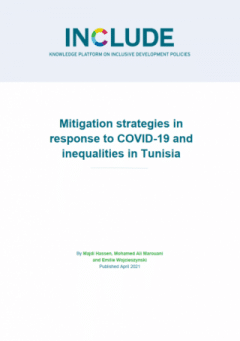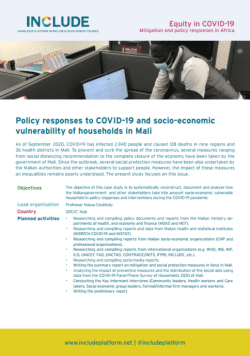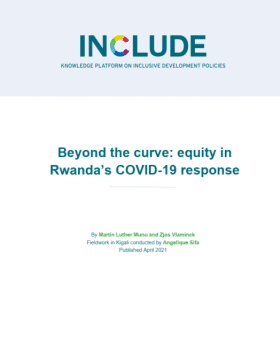
The COVID pandemic in Kenya exposed societal inequalities and a lack of emergency preparedness, which must be addressed. The COVID response has been driven by a political elite with limited participation of or regard for some of the most marginalised groups. Regressive pandemic response measures disproportionately affected those of low socioeconomic status, most of whom were not reached by social safety net programmes. The massive increase in poverty is of grave concern: fighting poverty and addressing inequalities should be prioritized. There is a high risk of food insecurity, hunger and malnutrition partly resulting from restrictions on movement. The integrity of the food supply chain fell short during the pandemic, and its resilience must be bolstered. To improve continuity and quality of health services, greater ongoing investment in the health system is needed, including regularly paying health workers, developing the infrastructure, ensuring a reliable supply chain and providing mechanisms for accountability at every level. There is a wealth of talent in Kenya that could be better deployed in the COVID response.



